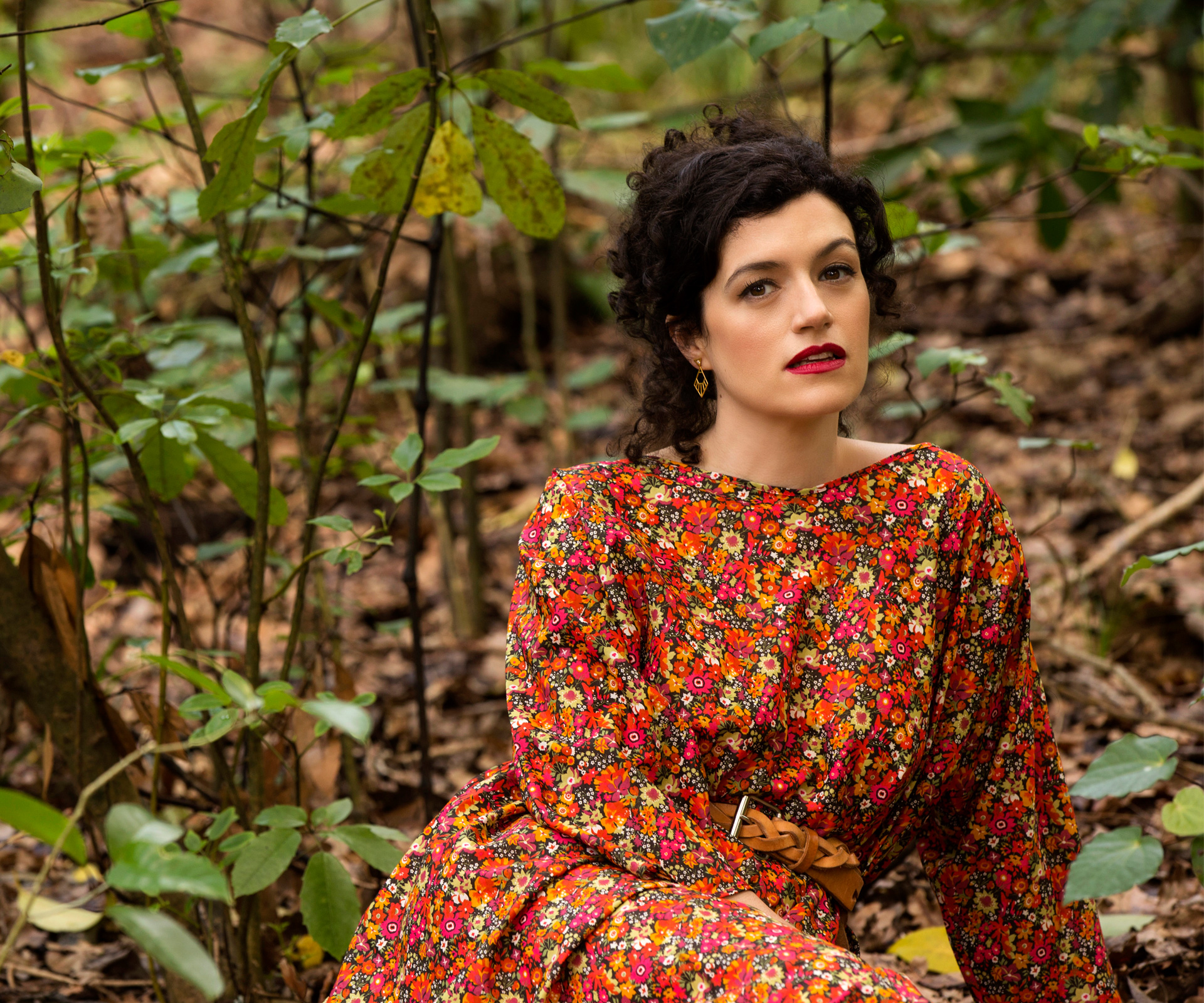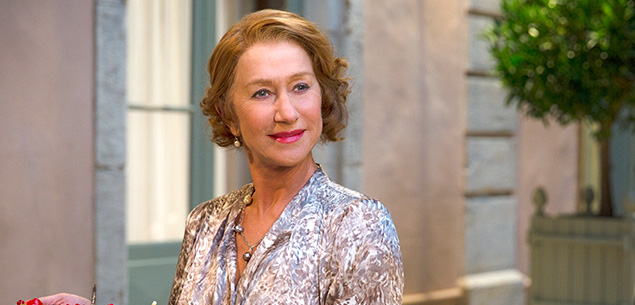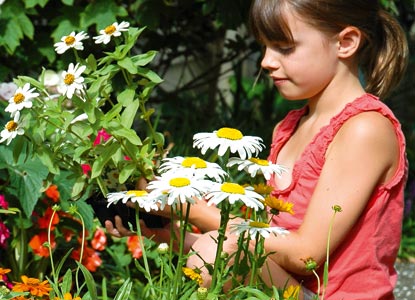At 37 years old, you wouldn’t think stylish broadcaster Noelle McCarthy would have much experience with ageing, or for that matter be much of an expert on the subject. But those who have been listening to her Radio New Zealand podcast A Wrinkle in Time, will know that she’s become somewhat of an ageing guru.
Since February, Noelle has devoted herself to finding out how our relationship with ageing has changed as our life expectancy has increased. Hundreds of interviews later she produced six half-hour episodes (which can be listened to at any time online) about getting older in a world that wants us to stay young.
“There are so many people who are better qualified in terms of years if you look at the majority of the audience for RNZ National,” says Noelle. “They know so much more about it than me, but I felt it was important to not be an expert, to honour the experience of the interviewee.
“The people I spoke to were getting on with their lives with such grace and honesty and humour because life is nasty and brutish and short and our bodies let us down all the time, but there’s also a spiritual element that is so fulfilling.
I came away feeling that it was really important for me not to sugar-coat it – to address dementia, cancer, loss of vision, impaired physical movement… the idea that all of those things are in the post for me.”
During the series Noelle heads off to get Botox, and then decides not to – “reserving the right to change my mind at a later date,” she adds. She talks candidly to people of different ages about their experiences and interviews many experts on ageing.
The interview that affected Noelle personally was with Professor Richard Faull, who is the director of the Centre for Brain Research at Auckland University.
“He and his team are known internationally for discovering the brain can actually keep making new brain cells throughout adult life. I was nearing the end of my interviews and really overloaded with information.
I was feeling a bit lost. And he said to me that what you think of as challenges are often these great opportunities. His researchers hadn’t been looking for the brain growth discovery; it came out of something else they were doing. So I came away and thought I will follow the threads that are most interesting and most uplifting to me because I believe optimism is essential in this.”
Someone she found particularly interesting to interview was Dr Ruth Westheimer, the American sex therapist who was insistent that older women wear bolero jackets to cover their upper arms.
“It was very early in the morning, my time, and she started out being very graphic about the mechanics of sex, the need for lubrication and perhaps some pharmacological help, and then she became fixated on the bolero thing. I found that quite confronting and quite ageist actually!”
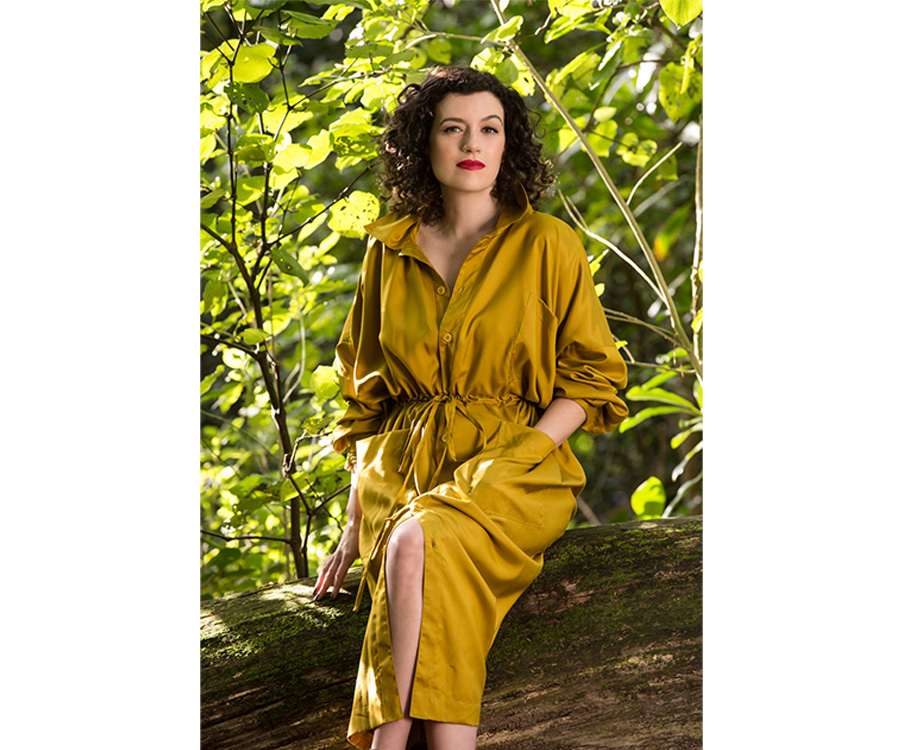
Dr Ruth never made the final cut, mainly because Noelle felt that sex in the older age group was too complex a topic to deal with so lightly in her series. “That needs a series of its own.”
Some of the podcast is devoted to how people’s experiences of ageing in this era differ so much from others who lived just a short 150 years ago.
“Even across generations our life experience is so different. When I was 32 I bought my first washing machine; when my mother was 32 she had four children,” says Noelle.
“Milestones have shifted and our experiences of age have changed. I spoke to an epidemiologist and was told that at the time when New Zealand had the highest life-expectancy in the world, the average lifespan was the mid-50s – that’s just 150 years ago.
“All of this happened in such a short space of time and it changed our concept of old age. It made it so much better in some ways and so much harder in others, such as
the pressure to have cosmetic interventions.
“Ageing is now scary, yet wonderful, and liberating, yet enslaving if you put yourself into this regimen of maintaining vitality at all costs. That’s why it’s so great to hear Professor Faull say, ‘Keep it simple – do what you love and be around the people you love and you’ll be fine.’”
A Wrinkle in Time is the first podcast produced for RNZ National, so Noelle was very aware she was breaking new ground.
“I didn’t really want to do it at first because I was too scared. I worried that I didn’t know enough or could do something in this format. I’m quite an anxious over-thinker so when big opportunities present themselves it can be hard. But I believe that if you can think your way to right-acting you can act your way to right-thinking – so you fake it.”
Firstly, though, Noelle decided to get on the phone and ring top podcast producer Simon Adler from WYNC’s Radiolab podcast. WYNC is New York’s public radio service.
She asked him for some advice about what she needed to make her podcast series the best it could be and soon realised that Simon worked with teams of researchers and producers on just one podcast. Back here in New Zealand it was only Noelle and a part-time researcher and sound designer Andre Upston from Radio New Zealand working on it.
“When I explained this to him, he narrowed it down to one thing – I needed a script editor to take a look at my work from a distance.”
So she asked her screenwriter fiancé John Daniell to help her out. “It’s one thing to kiss a guy and another to let him edit your script,” says Noelle, who had to work on
her defensiveness.
It’s taken Noelle eight years at Radio New Zealand to reach the stage where she could produce A Wrinkle in Time. Many listeners will know her from Summer Noelle, which has been the background to Kiwi summers since 2007, with her lyrical Irish accent keeping us company at the bach, in the garden or on the sun lounger.
“There’s a lovely sense of peace and ease and community about the show,” says Noelle, whose mix of interviews and material has always been eclectic because it reflects many of her own particular interests.
“Someone once told me that as a family they drink Brandy Alexanders on Boxing Day and sit around listening to Summer Noelle, so that is who I’m talking to on that show – it helps me get in the mood.”
Sadly, there won’t be any more Summer Noelle, as Radio New Zealand has told her there is no longer the money to fund the show. “It was a real source of joy for me because New Zealand summers are phenomenal and the national mood changes. I loved being connected to that.”
When Noelle arrived in New Zealand from Cork, Ireland, in 2002 she had no idea she would end up as one of our favourite broadcasters. She was doing her Masters in Philosophy in Cork when she met New Zealand celebrity chef Peta Mathias.
“She was eating at the restaurant I worked at. It was owned by a Kiwi, so we had a lovely New Zealand wine list. Peta and I got talking and she gave me her card in case I was ever in New Zealand.”
Not long after that meeting Noelle went backpacking through Asia and ended up in New Zealand. She gave Peta a call and she very kindly picked Noelle up from the airport, let her live in her house and even helped her find a job as a waitress at Auckland’s popular media lunch haunt, Prego.
Noelle fell in love with New Zealand, went back to university here and volunteered at the campus radio station 95bFM.
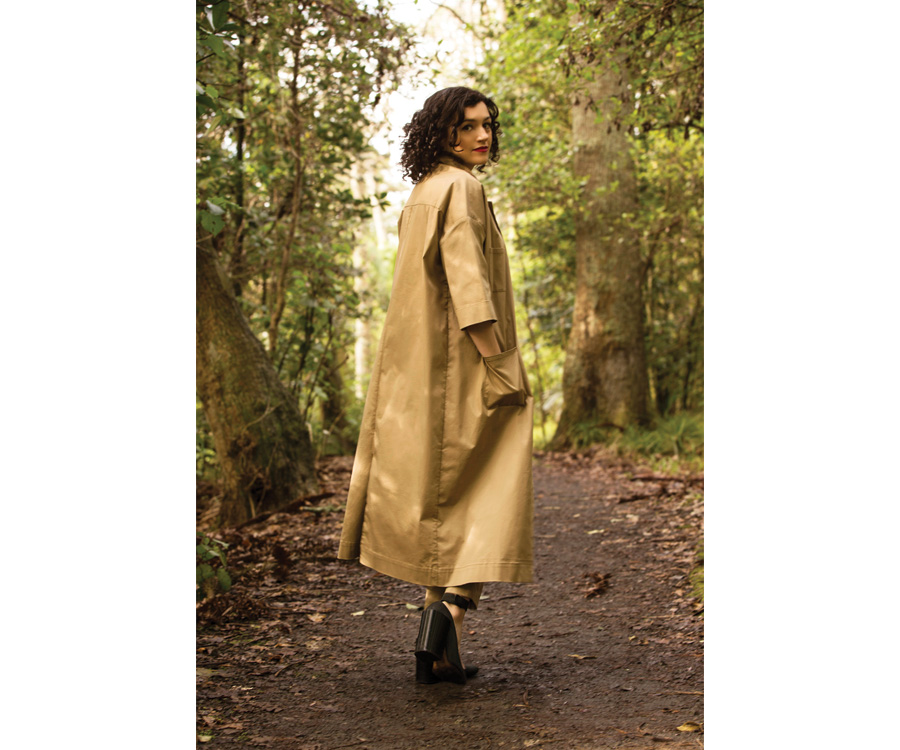
“There I met like-minded people and there was so much scope to do interesting work surrounded by enormously funny and clever people like Jeremy Wells and Paul Casserly.”
She stayed in New Zealand for 10 years, then returned to Ireland for 18 months before coming back with her boyfriend John, with whom she had just spent five months in France while he was getting his first novel, The Fixer, ready for publication in 2013. The couple plans to marry next year.
But Noelle will no longer be working at Radio New Zealand. With Summer Noelle at an end, the popular broadcaster has decided to find other work to keep her stimulated.
“This podcast series has set me up beautifully to work in a way that journalists are increasingly being called on to work – across print, television, video, live events and more. I can now tell stories in lots of different ways so I want to keep doing that,” she says.
“I was so lucky that Radio New Zealand gave me the chance to break new ground with this podcast and that they gave me such incredible scope to do what I wanted.”
As Noelle approaches 40, she remains quite proud of her grandmother, who lied so much about her age that when she died they had to hunt for a birth certificate before doing her gravestone.
“I admit I tried not to think much about ageing before I did this podcast, but now I see what’s going to happen. As Bette Davis said, old age is not for sissies.”
Three things Noelle learned about ageing:
– There’s no ‘secret formula’ to ageing well.
A lot of magazine articles and marketing campaigns are written as if there is a ‘secret’ to healthy ageing. But it isn’t that simple, and it’s not the same for everyone. Sure, some foods have proven health benefits and we know exercise is good for the mind and body, but there are as many different ways to age as there are people. The happiest interviewees in the series were the ones who have found the lifestyle that is right for them. Ageing necessitates your own unique approach, just the same way that living daily life does!
– Do what you love for as long as you can.
Professor Faull, the neuroscientist, told me that the best way to keep our brains in good shape is to find something we enjoy doing, and do it every single day for as long as possible. It can be as simple as knitting, gardening, or even having a little bit of a sing-song in the morning. In episode 3 of the series, a woman called Daphne told me how she sings every day “because it’s a tonic”. She turned 101 while I was interviewing her, so I think the proof is in the pudding!
– It’s never too late to change.
The most inspiring thing was learning that it’s never too late to change. I met people in their 80s and 90s who were adjusting to new routines, finding new hobbies and making new friends. It is never too late for us to keep growing in life. I will never forget Margaret, who works in aged care and who said to me, “We affirm our elders in who they used to be, but we need to affirm them in who they are becoming as well.”
